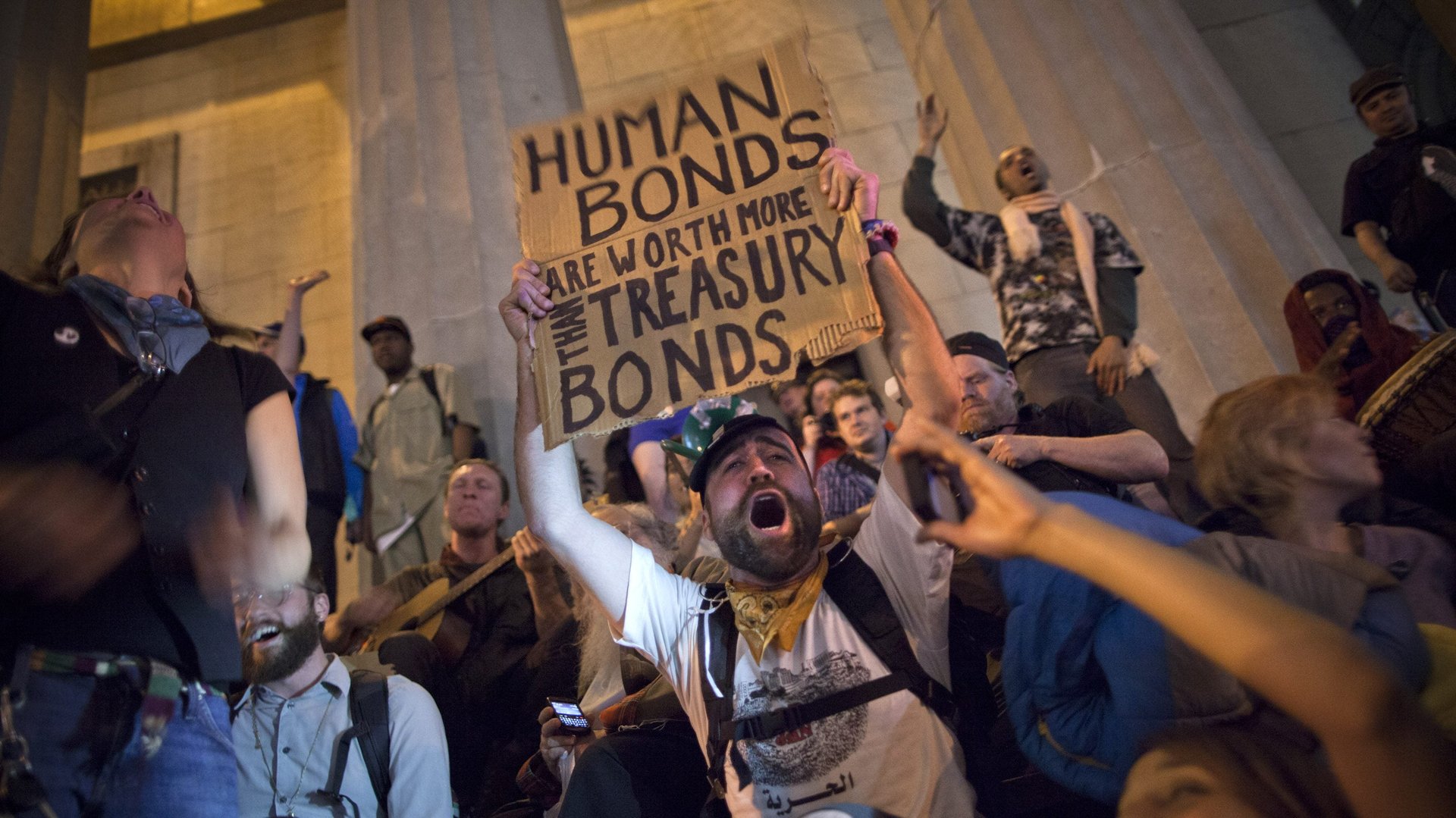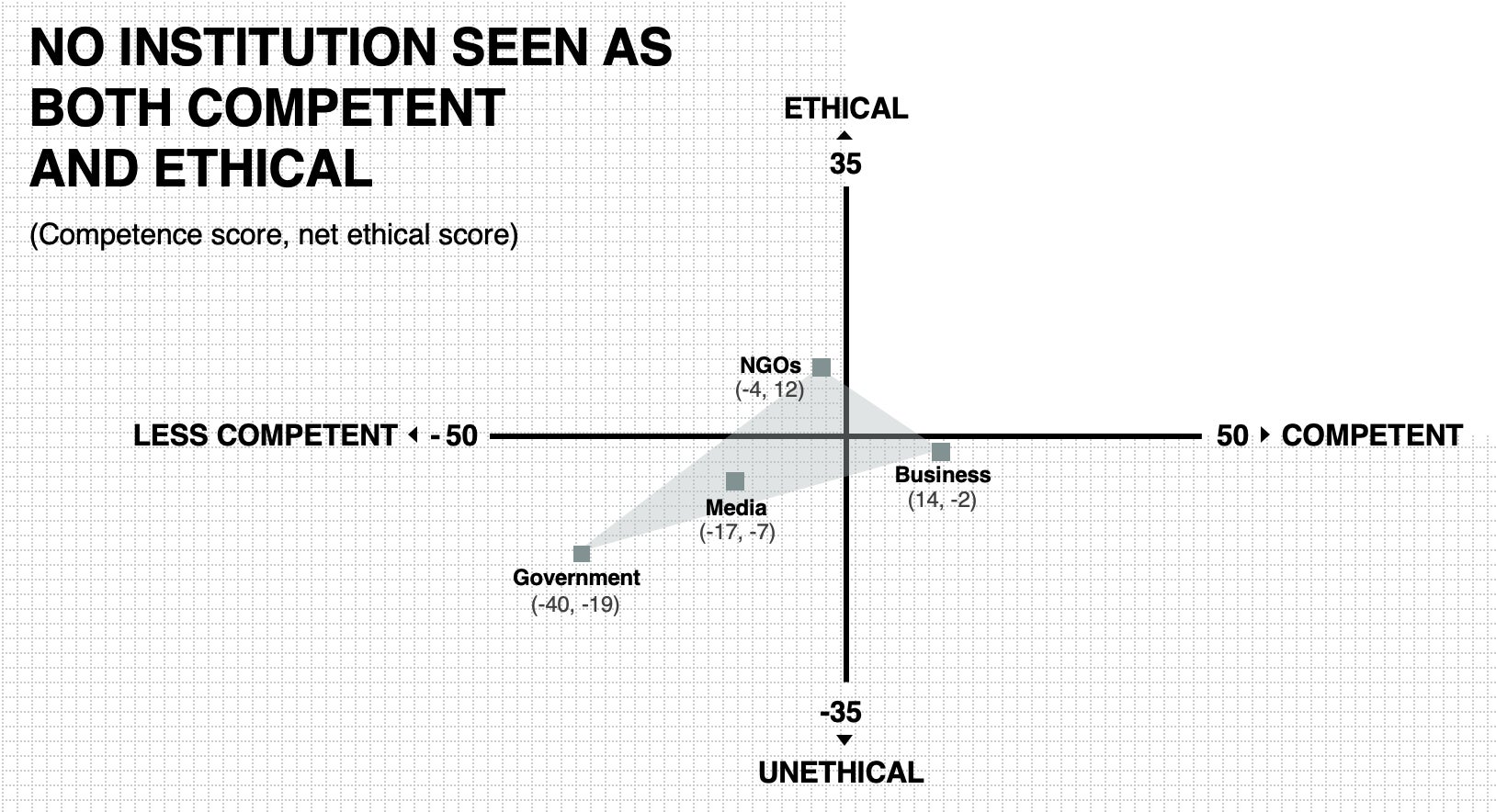Most people think it’s impossible to be both ethical and competent
PR agency Edelman has been measuring public trust in people and institutions for the past 20 years. Its latest survey, which polled more than 34,000 people in 28 countries, found that fear has eclipsed hope, no institution is seen as both competent and effective, and nobody has a vision for the future that a majority of people believe in.


PR agency Edelman has been measuring public trust in people and institutions for the past 20 years. Its latest survey, which polled more than 34,000 people in 28 countries, found that fear has eclipsed hope, no institution is seen as both competent and effective, and nobody has a vision for the future that a majority of people believe in.
So there’s that.
“We are living in a trust paradox,” said Richard Edelman, CEO of the eponymous firm, describing the fact that economic growth no longer appears to drive optimism in developed markets. “National income inequality is now the more important factor in institutional trust,” he said. “Fears are stifling hope, as long-held assumptions about hard work leading to upward mobility are now invalid.”
Edelman’s model for measuring trust weighs both competence (delivering on promises) and ethical behavior (doing the right thing and working to improve society). The more institutions can balance competence and ethical behavior, the more people tend to trust it.
Alas, none of the four key institutions measured by Edelman—government, business, NGOs, and media—were perceived as both competent and ethical by the public.

In Edelman’s index of public perception, business ranked the highest in competence, and government the least. NGOs have a big lead on business, government on ethics, but are not perceived to be especially competent. Government and media, meanwhile, are perceived as both incompetent and unethical.
Edelman has been measuring trust for 20 years now. Each year reflects the reality of the moment: in 2009, for example, trust in business plummeted in the aftermath of the global financial crisis. But it’s since rebuilt, and business is now the most trusted institution of the group. Somewhat surprisingly, technology is the most trusted sector within business, despite recent ethical challenges.
Edelman’s report is always released at the start of the World Economic Forum, the annual gathering of the global elite in Davos, Switzerland. The forum itself faces its own trust paradox: it extols gender diversity, protecting the environment, and confronting inequality, while women are woefully underrepresented as delegates, its attendees tend toward travel on carbon-spewing private planes, and billionaires abound.
“We now observe an Alice in Wonderland moment of elite buoyancy and mass despair,” Edelman said in an essay reflecting on the survey’s 20th anniversary.